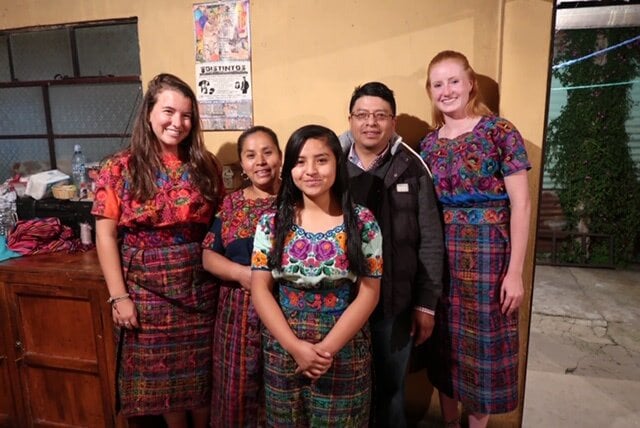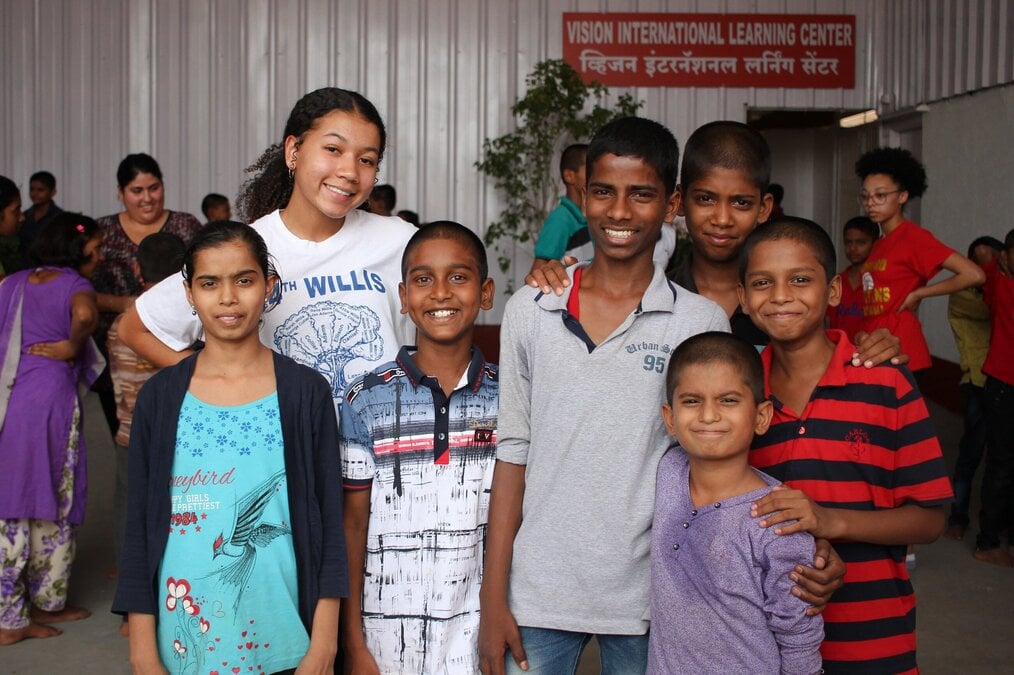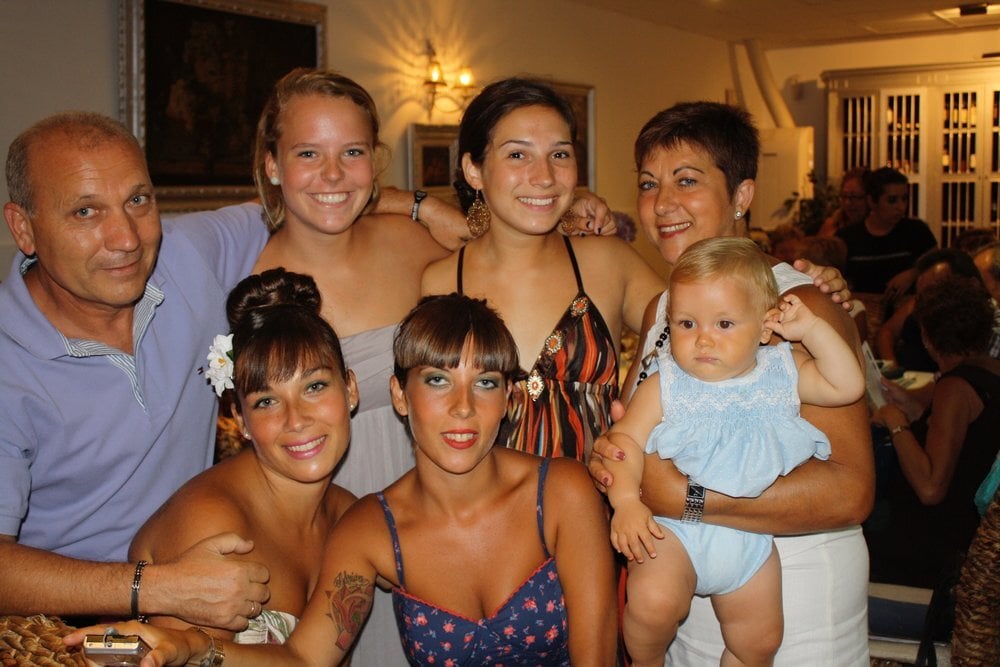How to Live with a Host Family While Studying Abroad
When studying abroad, there are plenty of housing options to choose from. Staying with a host family can provide you with the ultimate cultural immersion experience, but it will also take some adjusting. Read on to learn how to make the most of your homestay abroad.
From movies depicting young adults living abroad or books telling stories about students enrolling in classes around the world, studying abroad has become a popular (and productive!) way to add some variety to students’ schedules. I spent my semester abroad in Buenos Aires, and during my five months in Latin America, I was able to learn about my host country and experience day-to-day life in Argentina.
Much of my immersion process came from living with a host family, a popular housing option for study abroad students. Living with a host family comes with many inherent perks. These include more consistent language and cultural immersion, building a sense of inclusion in your new environment, and these arrangements are usually cheaper than if you looked for an apartment on your own. However, living with a host family also comes with some limitations that are inherent to sharing a living space with strangers, and there is always the possibility that you might have different life patterns and preferences.
Living with a host family is a truly rewarding experience, balancing both the perks and limitations. If you think that living with a host family might work during your semester or year abroad, here are some tips to make the process run more smoothly.
Before You Start Your Study Abroad Program

Before you live with a host family, you’ll need to find a program and apply. The tips in this section will help make your application process go more smoothly -- and produce a better fit between you and your host family.
-
Honestly Fill Out Your Application
You may be tempted to minimize your preferences or desires when you apply for a host family in the hopes it will make your application more successful or desirable.This only creates problems once you meet your host family and you realize you don’t have as much in common as you thought. Be honest about your preferences when filling out questionnaires relating to your lifestyle and habits.
Read more: How to Ace Your Study Abroad Application
This information is what your program will use to match you with a host family, so it is important to be as truthful as possible. If you are stuck on a particular question, feel free to consult a family member or former roommate for advice on how to answer it since they already know you well.
-
Learn About Your Host Family’s Culture
Culture shock will happen no matter how prepared you are before your trip, but learning a bit about your host culture can help reduce some unnecessary miscommunication between host families and study abroad students.
Reading about your new community can help you know whether it is considered rude to be barefoot in the house before you make the mistake of doing so on-site, so a little research beforehand can help you avoid an uncomfortable faux pas with your family. Also, learning about your host culture before stepping on a plane can teach you how to respectfully ask about your family’s preferences for these habits once you arrive.
-
Learn Basic Phrases in Your Host Family’s Language
If you don't already know the local language, try and learn a few key phrases beforehand.
Meeting your host family is bound to be a little awkward, but being able to say basic phrases like “hello” and “thank you” in your host family’s native language is sure to make your first few days a little less uncomfortable. Plus, arriving with a few key phrases already in your vocabulary will show your host family you are excited about their culture and are eager to learn more about them.
Once You Arrive to Live With Your Host Family

Within the first week or two of arriving to live with your host family, there are some important steps you can take to build lasting relationships that will help make the rest of your time mutually enjoyable.
Read more: 12 Do's & Don'ts for Your Study Abroad Homestay
-
Get to Know Your Host Family
It’s a sad reality that many travelers who live with a host family never really make an effort to get to know their hosts. A combination of orientation, culture shock, and the realities of travel may create a boundary between you and your host family, but it’s the student’s responsibility to try and bridge these gaps. After all, you’re studying abroad to learn about new cultures and ways of life.
By asking questions and learning about your host family, you are far more likely to understand one another’s preferences and expectations. As a result, you are already preparing to alleviate potential areas for miscommunication down the road. This is also a great time to vocalize any allergies you might have and to ask if anyone in your host family has any, as well.
-
Establish or Confirm House Rules
Soon after you arrive, have a frank discussion about house rules and expectations.
Maybe your host mother serves dinner every night at 8 p.m. or your host sister needs the kitchen table on Saturday mornings to work on her art project. Are you allowed to have guests visit you? What about overnight visitors?
It is much easier to have these discussions before a potential conflict arises, so come ready for open communication. Putting in the effort to have this potentially uncomfortable conversation early during your stay will help make the whole experience more enjoyable for you and your host family — and no matter how awkward this conversation might seem, it would be way more uncomfortable to have the conversation after you broke a rule.
-
Share Your Home Culture with Your Host Family
Most of the time, host families are interested in cultural immersion just as much as the students are -- otherwise, there would be less incentive for them to open their homes to a stranger!
Not sure what you can do to share your home culture? Try preparing a meal from home. It’s a great way to give your host family a peek into your own culture while offering them a nice treat for their hospitality, too.
While Living With Your Host Family

After you’ve settled in with your host family and the initial culture shock has worn off, there are some important tips you can use to keep the whole experience going smoothly.
-
Keep in Touch About Your Plans
It’s a courtesy you’ve likely not had to extend since you lived with your parents: let your host family know when you plan to be out of the house.
If you will be out later than normal or if you intend to miss a regular meal, it is polite to let your host family know beforehand. Even if you are used to living on your own, your host family is responsible for your well-being during your time with them, so it is courteous to let them know if you plan to be out. Otherwise, they might worry about you the entire time you are gone, which is not fair to them.
-
Respect House Rules
Shortly after arriving, you had a conversation with your host family about their house rules, right? Now that you know your host family better and the rules they keep in their house, you should abide by them.
Even if you think certain restrictions or habits are silly and are things you would never consider doing in your own household, it is important to remember you are a guest in their home and are staying in their space. Therefore, your respect is one of the most important things you can give your host family.
-
Integrate with Your Host Family
If you wanted to strike out and be completely on your own during your semester or year abroad, you likely wouldn’t choose to live with a host family. Now’s the time to benefit from your built-in community abroad and spend some time with them as they go about their daily routines.
If the whole group goes grocery shopping on Sundays, ask if you can tag along. If there is a family birthday party or anniversary coming up, see if you can join. The more proactive you are and the more interest you show in your host family, the more likely you are to understand one another. This, in turn, should result in a smoother experience together.
After You Move Out from Your Host Family’s Home

Just because you’ve moved out doesn’t mean you have to say goodbye to your host family forever. These few tips will help ease your transition out of your host family’s home and on to your next adventure -- without severing ties completely.
-
Stay in Touch
If you had a good time with your family, staying in touch with your host family by writing letters or via social media helps you stay up-to-date on their daily lives and what is going on in your host community once you leave. This is a good way to remain connected with your study abroad experience and all the wonderful people you met.
-
Keep Them Updated
If you are like a lot of study abroad students, you probably used your time in your new environment to reflect upon what you wanted your next steps in life to look like.
Once you figure that out, let your host family know. Your host family is an integral part of your semester or year abroad, and they probably influenced your decision in some way, so let them know if you decided to apply to graduate school or took that internship in a new city.
-
Be Honest in Your Feedback
If your program asks for reviews afterward, be honest about your experience. This will help program directors make an informed decision when placing students with families for the next session, which can help make a fellow study abroad student’s year go smoothly, too. It’s a way of giving back after you’ve finished your stay with your host family -- and helps future generations of travelers have a great experience like you did.
Deciding to live with a host family is a personal, dynamic decision. However, by maintaining open, honest communication with your host family during your time abroad, you are likely to have a more positive experience. While your study abroad experience is a prime time to explore a city or country, your accommodations abroad will serve as your home base. So, it makes sense to do your best to maintain a positive relationship with your host family so everyone involved can enjoy the experience
This article was originally published in May 2018, and it was updated in February 2021.
